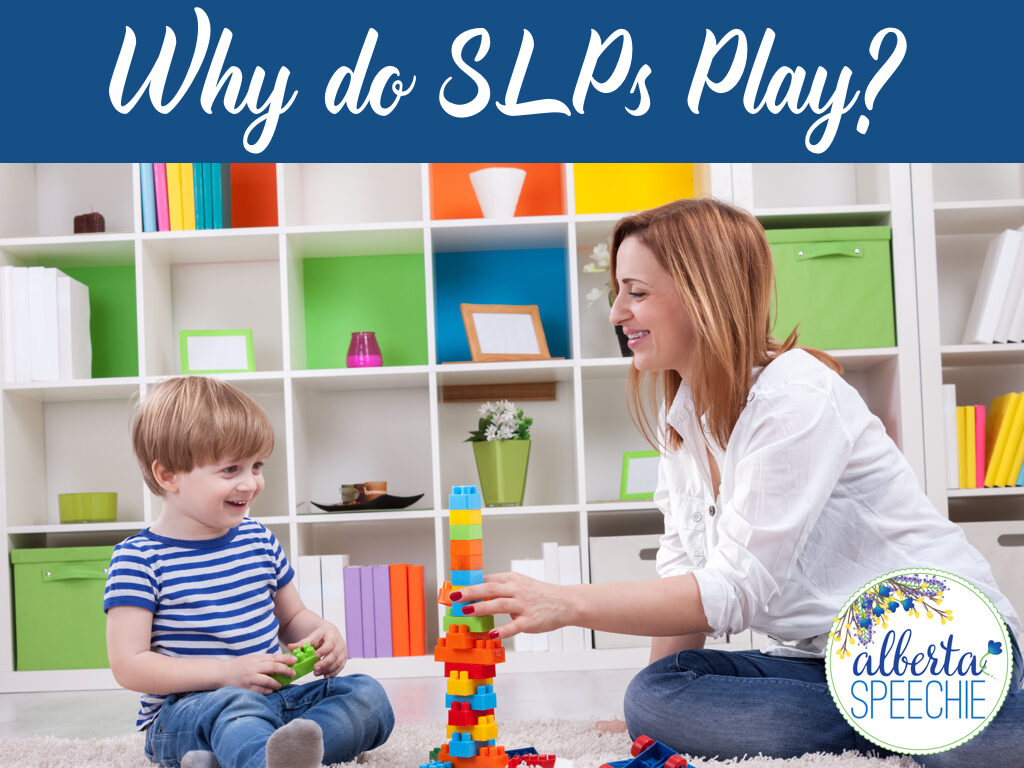Great communication occurs when playing. An important job for an SLP is make people communicate better. A great way to work on communication is during natural situations. For children, especially young children, this means during play. If you want to know how a child can truly (functionally) communicate, then play with them.
When you have fun you learn more. I was first introduced to this concept when I was in high school. I had two teachers that marched to their own beat. I would both anticipate and dread going to their classes. I never knew when I would have to sing some song in a Shakespeare play or be re-enacting battle scenes. One day another student asked, “Why do you make us do this stuff?” The teacher answered, “You learn more when I make it fun and interesting.” He was right. We were more attentive and we all knew the information cold, even the students who struggled in school. This is the same idea. Kids having fun will learn what we are working on faster. They have longer attention spans and will work hard, even when what they are working on is difficult for them.
Kids’ job is to play and explore. We, as a society, are moving more away from this concept but I truly believe that a child’s job is to interact and explore their environment. That means play. Kids learn how to cook by playing with spatulas, bowls, toy food etc… SLPs use that curiosity to build skills that are weak and/or missing. Playing is a great way to build all sorts of skills including building vocabulary, helping children make longer sentences and following directions. It can help with sequencing activities, problem solving and using their imaginations to create stories. It is even great for improving a child’s pronunciation. Some children don’t know how to play and then miss all those amazing opportunities to do “hands on” learning. So yes, we even teach some children how to play.
We help children with social skills. This has been a big push in the last few years. You don’t get very far in life if you don’t have people skills. Children learn and start developing these skills when they are playing with other children. It is not uncommon for children with speech and language delays to need help with their social skills. Some of the best ways to do this is when they are playing. Having an SLP coach a child to negotiate during play can help that child learn what to do when that situation occurs again.
It helps with generalizing skills. SLPs talk lots about “generalization.” This is where a child uses a skill across multiple settings and situations. When a child is exposed to a skill in different contexts where the situation is slightly different each time makes generalization easier than doing the same activity the exact same way every time. It is really hard to make play the exact same routine every time. In fact, we work with children to expand their play if they want to do the same thing, the same way every time.
There are other reasons why SLPs play but you don’t need or want to read a 50 page report, these are just my top reasons. So next time you see an SLP playing, know that it is not just for fun, there is a reason why we play. Next week I’ll talk a little about how we choose the toys/games to use.


One Comment